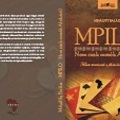 A zsidóság történelmében valóban súlyos helyet kapott a kitaszítottság. Olyan korban, ahol a föld testesítette meg a tulajdont és feudalizmusnak hívtak, a zsidóknak nem lehetett földtulajdonuk. Maradt a kereskedelem, pénzforgalom és a szakmák, mint orvos, ügyvéd, stb. Az egyházak mindemellett csúcsteljesítményt nyújtottak azzal, hogy egy zsidó próféta kivégzésének körülményeit felnagyítsák, de a próféta származása ne kapjon hangsúlyt.
A zsidóság történelmében valóban súlyos helyet kapott a kitaszítottság. Olyan korban, ahol a föld testesítette meg a tulajdont és feudalizmusnak hívtak, a zsidóknak nem lehetett földtulajdonuk. Maradt a kereskedelem, pénzforgalom és a szakmák, mint orvos, ügyvéd, stb. Az egyházak mindemellett csúcsteljesítményt nyújtottak azzal, hogy egy zsidó próféta kivégzésének körülményeit felnagyítsák, de a próféta származása ne kapjon hangsúlyt.
Az adós–hitelező, beteg–orvos, peres–jogi képviselő viszony mindenképpen függőséget hozott az emberi kapcsolatokban. Ha ezt a függőségi viszonyrendszert tovább fűszerezi egy egyházi támogatású antiszemitizmus, akkor bizony létrejön egy furcsa állapot, melynek a mai nap az eredménye. Ezt a helyzetet tagadhatatlanul tovább súlyosbítja a holokauszt. A zsidóság saját biztonságát e függőségi rendszerek felerősítésében tudja megteremteni. Az antiszemitizmus a zsidóság biztonságra irányuló igényét tovább erősíti, ezzel pont az ellenkező hatást éri el. Ahelyett, hogy a zsidóság feloldódását hozná, az elkülönülést és további függőségi viszonyrendszer felerősödését eredményezi. Antiszemitizmus nélkül talán már téma sem lenne a zsidó szegregáció...Az antiszemitizmus jelenlétéből két következtetés vonható le:
– szélsőséges zsidó és nem zsidó csoportok érdeke ennek fenntartása
– minden normális nem zsidó és zsidó emberi érdek ennek megszűnése…
A jelenleg felerősödött antiszemitizmus olyan emberekből is előhozta a zsidóság érzetét, akik eddig nem is tudták magukról, hogy zsidó származásúak… Miért téma ez még mindig?
(Zsidó Világkongresszus, Budapest, 2013. május 5-7. Fotó: Internet)
———————————
The exclusion has a really important role in the history of Jews. In the time of feudalism the land embodied the property the Jews were not allowed to possess land. Therefore they dealt with commerce, finance and jobs like physician or lawyer… In addition the Churches gave enormous impact how to put in focus the execution of a Jewish prophet while they the origin of that prophet was absolutely ignored.
The different relationships between debtor–creditor, sick–physician, and litigation client–legal representative resulted dependence in the societies.If this system of dependence is strengthened further with anti-Semitism which is supported by the Church the result will be a strange situation like today. This situation is more complicated and serious if we keep in mind the holocaust. The Jewish population can feel security only if the above mentioned dependence is strengthening their position. So the anti-Semitism causes just the opposite result and increases the demand for the security more by the Jews. Instead of causing assimilation the anti-Semitism brings more segregation and dependence in the relationships.
Without anti-Semitism perhaps there would be no Jewish segregation. The existence of anti-Semitism gives opportunity to draw two consequences:







